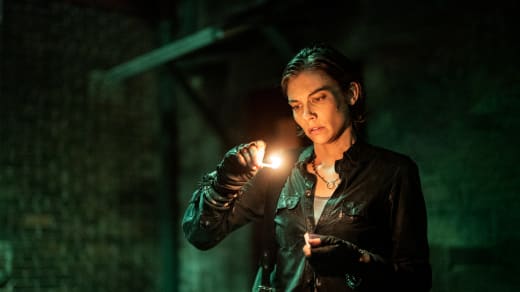Indiana Jones and the Dial of Destiny is the fourth Indiana Jones sequel — at least the fourth movie sequel. Cinema’s most famous archaeologist has been the subject of an enormous number of projects in other media, designed to keep his story going in between big-screen installments. He was the star of The Young Indiana Jones Chronicles on television, and the hero of a series of acclaimed computer games including Indiana Jones and the Fate of Atlantis. Indy also stars in at least a dozen novels, and he’s been turned into several theme park rides, including Disneyland’s Indiana Jones and the Temple of the Forbidden Eye.
Since the earliest days of his development, Indiana Jones has also been tied to comics. Some of the most important pieces of concept art for the character were painted by Jim Steranko, the legendary artist behind Marvel’s first Nick Fury, Agent of S.H.I.E.L.D. series. Later, comics then became like a second home to Indy, although some of his illustrated adventures there have already begun to slip into obscurity.
For example: Few realize that Steve Ditko, the mercurial and intensely private co-creator of Spider-Man, had one of his longest post-Spidey runs at Marvel on an Indiana Jones series.
Spider-Man Co-Creator Steve Ditko’s Run on Indiana Jones
During the 1980s, Spider-Man co-creator Steve Ditko contributed artwork to Marvel’s Indiana Jones comic book.
READ MORE: The Fabelmans Makes Kingdom of the Crystal Skull Way More Interesting
Indiana Jones fans have talked for years about trying to track down the unpublished 35th issue of The Further Adventures of Indiana Jones. While there are hints a story was already in production prior to the book’s cancelation, if any pages were illustrated for it by Ditko, they have never been published. If any of Further Adventures #35 exist, they remain another dusty artifact lost to history, like the Ark of the Covenant or the Holy Grail.

Futuristic Sci-Fi Movies That Are Now Set In The Past
When these sci-fi movies came out, they offered predictions for the future of society — years later, they’re officially set in the past.


























































![Mason Ramsey – Twang [Official Music Video] Mason Ramsey – Twang [Official Music Video]](https://i.ytimg.com/vi/xwe8F_AhLY0/maxresdefault.jpg)




















